Austria is peppered with castles, especially to the East where throughout history most invasions came, where many trade routes came and went. At the very southern end of Lower Austria, in the in the picturesque countryside of the municipality of Breitenstein is one such castle ruin.
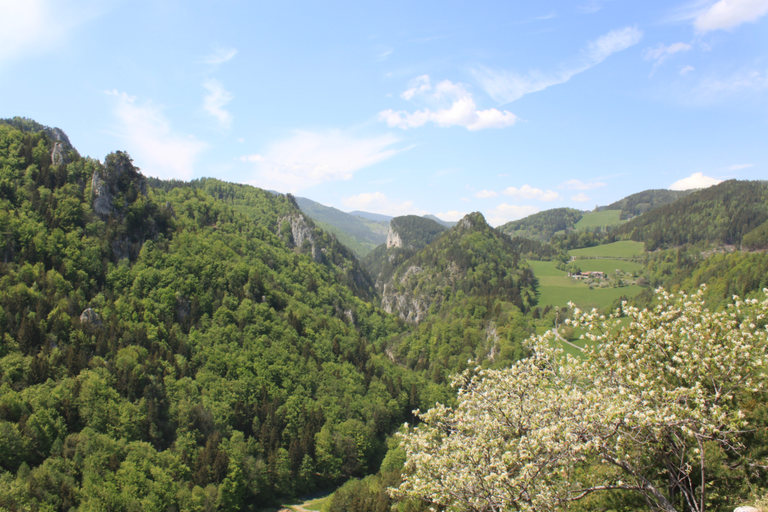
The castle is perched atop a rocky outcrop, the Heubachkogel, which over looks the valley that leads into the nearby gorge, hence it's name, Burg Klamm. Klamm translates as gorge. The south facing wall of Heubachkogel drops 125 meters to the valley below, affording the castle unassailable protection from that direction. By lowering ropes to small caves on this cliff face during times of war, valuables could be hidden and kept out of reach from any marauding armies. There is only one easy approach to the castle gates, which forces any would-be attackers to present their left flank to the castle battlements.
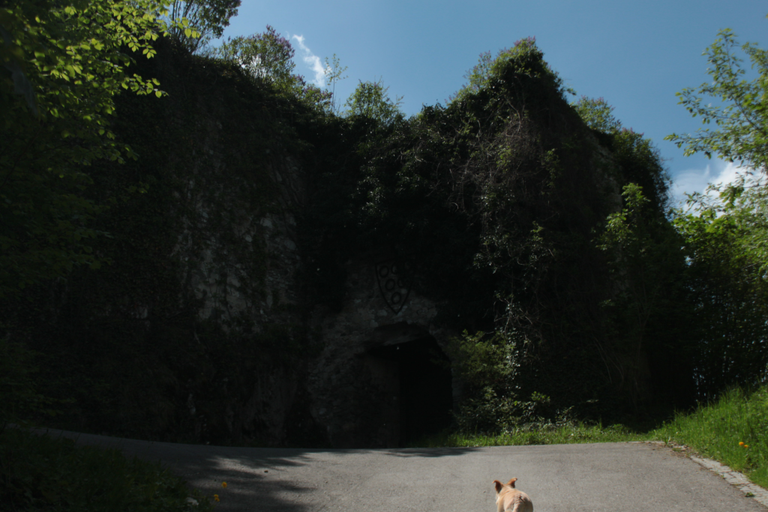
Below the castle is the small village of Klamm with it's Medieval church. Judging from the size of the graveyard, many more people must have once lived in the area. This would have been where first the construction workers for the castle lived and worked, and then later, the people who serviced it.
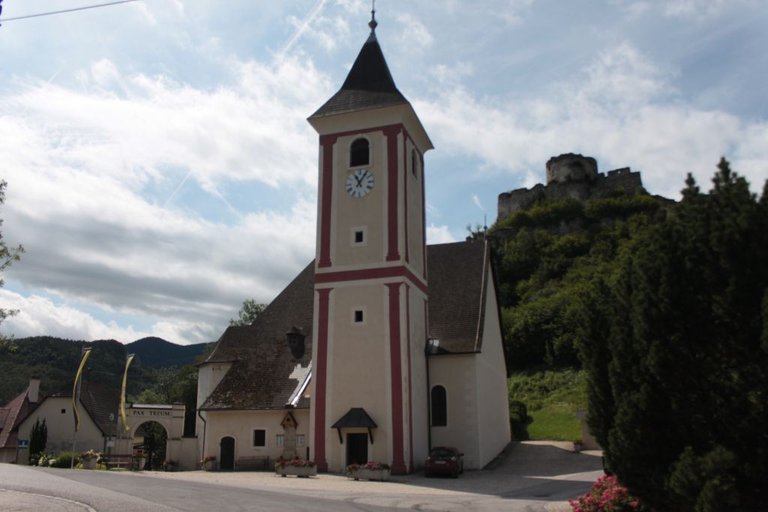
The castle today is a ruin and is a heritage listed building, which must make headaches for today's private owners. Because of the private ownership, unfortunately it is not possible to tour the inside of the castle. However, there are various vantage points around the castle to view and photograph it from. I did also find a drone video which gives you a reasonable view of what is behind the walls.
The location was first mentioned in documents round 1130. In 1339, Hermann II of Klamm-Pitten sold the castle to the dukes of Albrecht, Friedrich, Leopold and Otto. Probably the castle stood until the beginning of the 15th century as the property of the aristocratic family Rappach. In 1432, the castle was conquered by the Hungarians, but then retaken by Maximilian I.
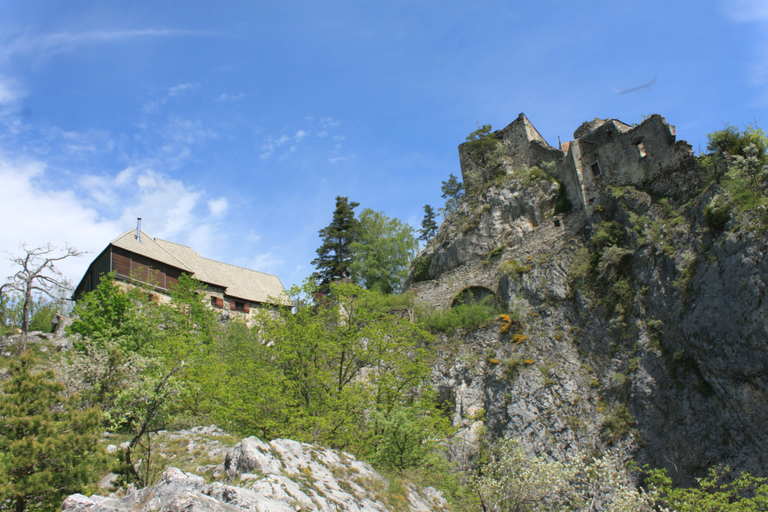
By the 1500s the castle was already in a state of disrepair and had to wait a further century until efforts were made to repair it. In 1801 there was a fire at the castle and suffered further damage during the Napoleonic Wars 1805/1809. In 1833, Countess Karoline Sternberg, born Walsegg, sold the castle to Johann I. Prince Liechtenstein, after which no further restoration work was done.
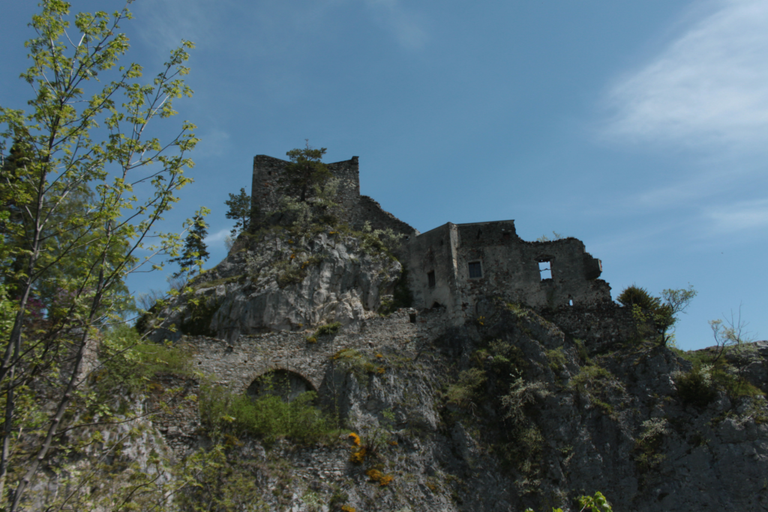
The castle used to be a place of strategic importance and for defence of the realm and trade, and now it is a crumbling ruin that only draws a few visitors that pass by on the hiking trail. Being so far away from any large city, it is not a place of large tourism, and is one of those lost corners of Austria. But that's one of the charming things about it, is it's seclusion, left alone in it's memories and the passing of seasons.
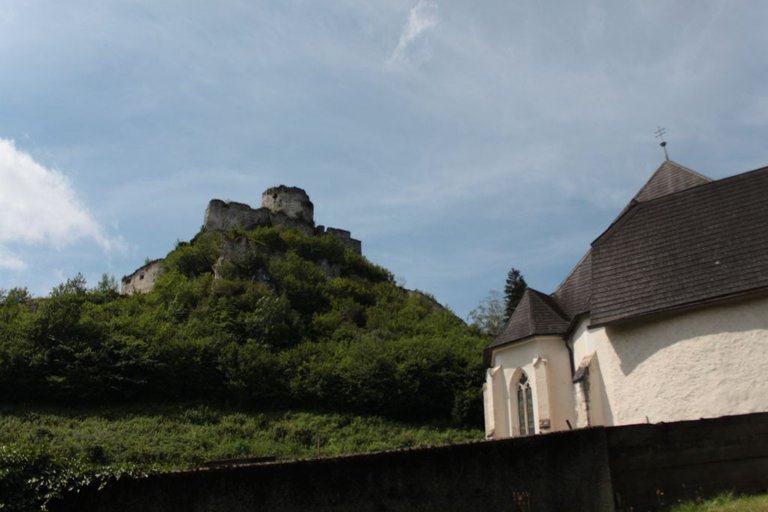
This is only one of a few more things from this region I'll post about in the future.
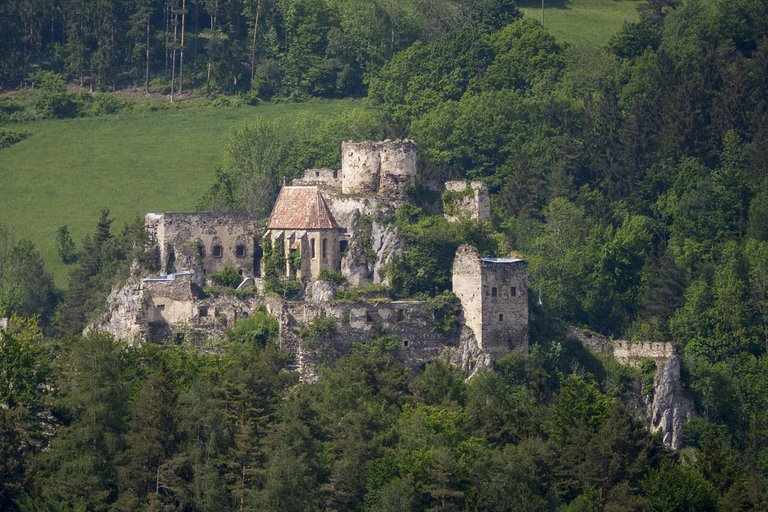
I'm mesmerized by the views🥺🥰
It's picturesque corner of the world.
Travel Digest #2270.
Become part of our travel community:
- Join our Discord
Hiya, @ybanezkim26 here, just swinging by to let you know that this post made it into our Top 3 in Your post has been manually curated by the @worldmappin team. If you like what we're doing, please drop by to check out all the rest of today's great posts and consider supporting other authors like yourself and us so we can keep the project going!Thank you @ybanezkim26!
Congratulations, your post has been added to WorldMapPin! 🎉
Did you know you have your own profile map?
And every post has their own map too!
Want to have your post on the map too?